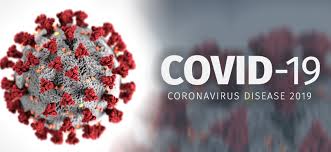
- Details
- By Levi Rickert
GRAND RAPIDS, Mich. — Even before the first confirmed COVID-19 (novel coronavirus) case was identified in Indian Country, Native News Online was committed to providing informative coverage of the unfolding impact of the deadly virus on our tribal communities.
With the restrictions associated with social (physical) distancing, we have been limited in our abilities to travel to cover stories as we normally would. Therefore, we have been relying on information and data released by governments, including tribal. Behind the tragic numbers released daily by the government entities are stories that should be shared. We ask that you send human interest and/or data-driven stories that you think could benefit Indian Country.
Please send your COVID-19-related stories and photographs to [email protected] and please include your contact information for a possible follow-up interview.
More Stories Like This
Native News Weekly (August 25, 2024): D.C. BriefsUS Presidents in Their Own Words Concerning American Indians
Native News Weekly (December 14, 2025): D.C. Briefs
Wounded Knee Massacre Site Protection Bill Passes Congress
Two Murdered on Colville Indian Reservation
Help us defend tribal sovereignty.
At Native News Online, our mission is rooted in telling the stories that strengthen sovereignty and uplift Indigenous voices — not just at year’s end, but every single day.
Because of your generosity last year, we were able to keep our reporters on the ground in tribal communities, at national gatherings and in the halls of Congress — covering the issues that matter most to Indian Country: sovereignty, culture, education, health and economic opportunity.
That support sustained us through a tough year in 2025. Now, as we look to the year ahead, we need your help right now to ensure warrior journalism remains strong — reporting that defends tribal sovereignty, amplifies Native truth, and holds power accountable.
 The stakes couldn't be higher. Your support keeps Native voices heard, Native stories told and Native sovereignty defended.
The stakes couldn't be higher. Your support keeps Native voices heard, Native stories told and Native sovereignty defended.
Stand with Warrior Journalism today.
Levi Rickert (Potawatomi), Editor & Publisher

